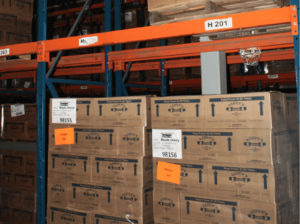Metrology Glossary: Temperature Coefficient
What Is The Temperature Coefficient?
The temperature coefficient is a measure that illuminates how a material’s inherent physical properties respond to fluctuations in temperature. It quantifies this relationship by representing the ratio of the change in a specific characteristic to the corresponding alteration in temperature for each unit of measurement. For example, when referring to the temperature coefficient of resistance in copper, which is approximately 0.004/°C, it indicates that for every one-degree Celsius temperature increment, the resistance of a copper wire will increase by 0.004%.
What Is The Temperature Coefficient Used For?
Material selection and engineering:
- Enhanced Electronic Components: Engineers optimize component performance by considering temperature coefficients. For precision circuits, low-temperature coefficient materials such as constantan are preferred for resistors.
- Innovative Temperature Sensors: High-temperature coefficient materials, such as platinum, are crucial for crafting temperature sensors used in applications from medical devices to scientific experiments.
- Guiding Design for Extreme Conditions: Temperature coefficients aid in predicting material behavior under extreme conditions, informing design choices for critical applications such as spacecraft components and high-power machinery.
Monitoring and control systems:
- Real-time Compensation in Electrical Circuits: Temperature coefficients enable automatic adjustments in electrical circuits, crucial for maintaining performance in power circuits and sensitive electronic devices.
- Non-invasive Monitoring of Temperature Variations: Temperature coefficients facilitate non-invasive monitoring and control in industrial processes or scientific experiments.
Related Terms
A thermistor is a distinctive semiconductor resistor recognized for its high sensitivity to shifts in temperature....
A RTD simulator mimics the function of a resistance temperature detector (RTD), which measures temperature by tracking changes in a metal's electrical resistance....
A Positive Temperature Coefficient (PTC) refers to a characteristic observed in specific materials, such as platinum and nickel, where their electrical resistance increases as the temperature rises....











